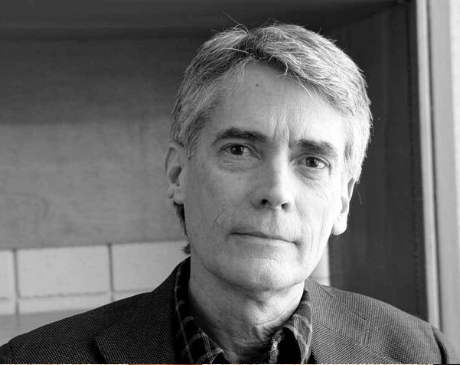Q & A: American Poetry
Q & A American Poetry: Bin Ramke

In his "Speech to the General Court" of 1645, John Winthrop acknowledged that "The great questions that have troubled the country, are about the authority of the magistrates and the liberty of the people." Authority and liberation remain the two powerful issues in American poetry as well as politics. The authority gained—thus the liberty lost—from reliance on received form relies on historical, cultural precedent which is, if not anti-American, at least anti-Enlightenment. All American poetry is religious poetry, at least theological poetry, in that it must deal with the absence (or presence?) of Ultimate Authority. Winthrop continued: "It is yourselves who have called us to this office, and being called by you, we have our authority from God, in way of an ordinance, such as hath the image of God eminently stamped upon it, the contempt and violation whereof hath been vindicated with examples of divine vengeance." We have few examples of divine vengeance among our various American poetics, but we have plenty of examples of self-justification. Often what is most American about American poetry is the self-reflexive, and the self-conscious need of the poem to defend its very existence as poem. What is American about American poetry is the curious oddity of its existence in the first place in a self-made nation of independent authorities.
I began writing these paragraphs sitting at a sidewalk table in Boulder, Colorado in the shadow of the Flatirons, a sandstone formation tipped into its current jaunty attitude some 65 million years ago. Geology intrigues me—part of Americanness in poetry is an attitude toward space, the land itself, and our attempt to earn the right to a place on it. It is not subject matter but syntax that I am thinking of, syntax and attitude—positioning, moral and linguistic. The American obsession with the sui generis, the self-made, is a result both of the ultimate liberation (self liberated from God and from country, from Mother, too) and of our ability to adopt and adapt, viz. Pound AND Eliot.
Also American about our poetry is our love of translation. Like some who love the sound of southern accents, this is part of us: an inferiority complex that reveres the foreign, the complexity of long histories, and consolation of final authority (kings and laureates). We are such sad bullies, we Americans, regretting our transformation of the world, how young and undisciplined we've made it. This is perhaps because, paradoxically, all language is local. The American language—amorphous, or perversely polymorphous: if poetry is the act of paying attention, then American poetry is attending to self first, is making self central.
Precursors who have generated our distinctly American poetics: Whitman, Poe, Dickinson, Stevens, Hawthorne (the short stories), Milton (Protestantism, which is to say liberation from religious authority, and the heroic—it's complicated. I'll figure it out later.) And Shakespeare: nobody's language is more American. Unless, of course, it's the King James version of the Bible.
Published 1999.



